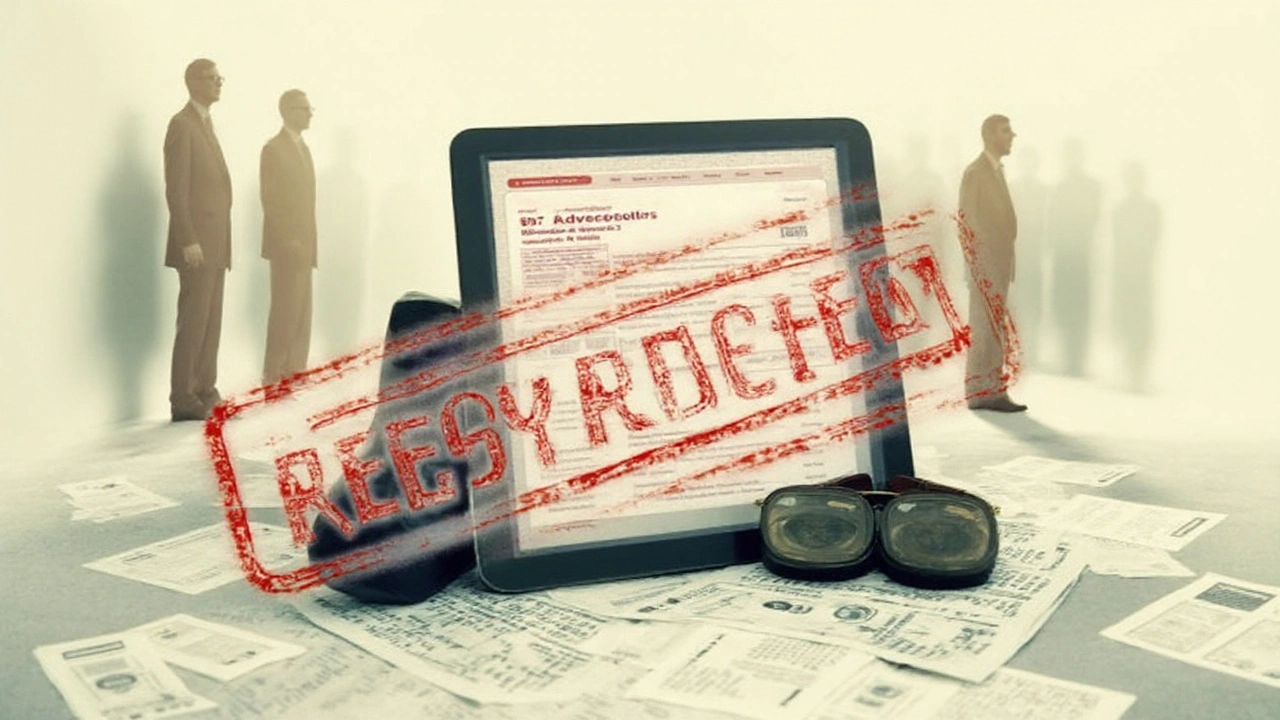Pain management can get tricky, fast. Hydrocodone, a strong prescription painkiller, sits right at the epicenter of this debate. It's powerful—sometimes essential for people who genuinely need it, especially when milder options don’t cut through the agony. At the same time, hydrocodone is an opioid, and that means red tape, extra scrutiny, and a ton of caution built into the whole process of getting a prescription—whether you’re seeing a doctor face-to-face or through a phone screen.
The Basics: Hydrocodone, Pain, and Why Prescribing It Is Tricky
Hydrocodone isn’t your garden-variety painkiller. It’s a semi-synthetic opioid, often combined with acetaminophen, and mainly used for managing moderate to severe pain — think post-surgery recovery or chronic back pain that knocks you off your feet. But it's not approved for use everywhere in the world. For example, in the US, you might see hydrocodone on a prescription pad. But in the UK, things are different: hydrocodone isn’t on the NHS medicine list and it isn’t licensed for prescription in the UK at all. Instead, British doctors stick to other strong painkillers like oxycodone, morphine, or codeine when an opioid is absolutely necessary.
This fact alone changes the entire conversation when it comes to online prescriptions. People might stumble over American forums online where telemedicine doctors send hydrocodone scripts straight to the pharmacy. But those stories just don’t translate to what happens in the UK. The law is the law, and if a medication isn’t licensed for UK use, you won’t find any doctor (virtual or in the flesh) legally writing a script for it. Instead, UK pain management is shaped by tough regulation, strict guidelines for controlled drugs, and recent concerns around opioid addiction.
If you’re wondering, “Why the fuss?”—it’s because hydrocodone gets misused easily. Opioids cause tolerance, dependence, and—at worst—can trigger life-threatening overdoses. These are real, documented risks. In fact, NHS data from recent years shows opioid prescriptions are going down due to tighter controls. Public Health England has flagged rising hospital admissions linked to opioids. These aren’t just numbers—they reflect the very human fallout from misuse and over-prescribing. That’s why online doctors operate under extra layers of protection when it comes to any opioid medication, never mind one that isn’t even licensed here.
Let’s give you something to hang onto. Here’s a roundup of legally available strong painkillers in the UK and how they compare to hydrocodone:
| Drug Name | Legal Status in UK | Common Uses | Main Risks |
|---|---|---|---|
| Hydrocodone | Not licensed | N/A | Not available |
| Oxycodone | Licensed | Severe pain, palliative care | Addiction, drowsiness, overdose |
| Morphine | Licensed | Severe pain, end-of-life care | Addiction, constipation, overdose |
| Codeine | Licensed (lower doses OTC with paracetamol) | Moderate pain, cough | Dependence, constipation, drowsiness |
Bottom line: No, you cannot get hydrocodone—online or otherwise—in the UK. If an online provider claims you can, alarm bells should ring. Genuine UK-regulated doctors will never try to go around the system with “unlicensed” shortcuts.
UK Opioid Prescribing Laws: How Telemedicine Is Regulated
So, if hydrocodone is off the table, what’s actually possible when you book an online consultation? The answer is: less than you might hope for strong painkillers, but with good reason. In the UK, all controlled drugs—including oxycodone, morphine, and even tramadol—come under the Misuse of Drugs Regulations 2001. This law sets strict rules for prescribing, dispensing, and monitoring these meds. The rules didn’t get thrown out the window when video appointments became a thing. In fact, the opposite happened. After the COVID-19 pandemic made remote healthcare the norm, the authorities doubled down to make sure online doctors were extra careful with these medicines.
The Care Quality Commission (CQC) keeps a close eye on telemedicine services, from big nationwide platforms to smaller “virtual clinics.” The General Medical Council (GMC) also has clear guidelines: doctors can only prescribe controlled drugs without meeting a patient in person under “exceptional circumstances,” and even then, only if they have full access to the patient’s medical history and can do a safe risk assessment.
For online prescriptions, the steps look like this:
- The doctor must do a proper remote assessment (usually a video or, at minimum, a phone call).
- They access your medical notes—often by contacting your GP—to check allergies, drug interactions, previous addiction or mental health concerns.
- If it’s a controlled drug, the prescriber is expected to follow tight protocols: document everything, explain risks specifically, check for “doctor shopping,” and monitor ongoing use.
- Most online doctors simply won’t prescribe strong opioids unless there’s a pre-existing relationship with the patient (like continuation of cancer pain meds), or unless they can work hand in hand with your usual GP and pain specialist.
It sounds strict, and it is. NHS Digital even tracks opioid prescriptions through the Electronic Prescription Service, making it much harder for one person to get the same drug from multiple routes. Plus, pharmacists play a huge gatekeeper role: if there’s the slightest doubt about a prescription’s validity, they’re trained to double-check with the doctor or refuse to dispense.
If you’re thinking of “shopping” for online scripts as a shortcut, you’ll hit a brick wall quickly. A recent inspection by the CQC found several online clinics had their licenses suspended or were ordered to improve, largely because controlled drugs were being prescribed without the required checks. In the last five years, tons of platforms have stopped offering controlled drugs online unless you have a close relationship with their service, and even then, not all strong opioids make the list.
So, if you need pain relief, what are your options online? Most UK-registered online doctors will suggest non-opioid options first—stronger versions of ibuprofen, naproxen, or combination painkillers with codeine (in lower doses). Anything stronger than that will almost always require face-to-face care, especially for ongoing use.

Spotting Safe vs. Sketchy Online Pharmacies: Red Flags and Real Help
Let’s be real: the internet is full of tempting offers for everything under the sun—hydrocodone, tramadol, “guaranteed no prescription” miracle cures. But it’s also where scammers and illegal providers lurk. If you stumble onto a website that promises to ship hydrocodone or any powerful opioid straight to your door in the UK, you should hit the brakes right away.
Here’s what safe, legal online doctor services always make clear:
- They’ll be registered with the CQC, and if they’re a pharmacy, with the General Pharmaceutical Council (GPhC)—look for their logos and check the official registers.
- They ask for real ID, current address, and allergy information before anything happens.
- A proper medical assessment is required. No easy online “tick box” surveys for controlled drugs.
- They can’t send controlled drugs like unlicensed opioids (hydrocodone) to a UK address. If they say they can, it’s dodgy—possibly illegal, and potentially dangerous.
- Payment in crypto or requests to “keep things confidential” outside the usual NHS or private records system is even more reason to run for the hills.
Fake pharmacies are a worldwide problem. According to the Medicines and Healthcare products Regulatory Agency (MHRA), in a single international sting, over 30 UK-based websites selling prescription-only drugs—including opioids—were shut down in just one week. They often peddled medicines that were fake, too strong, or outright dangerous.
So, how can you double-check before ordering?
- Find their CQC registration (a real one, searchable on the official CQC website).
- Look for online reviews on independent sites (not just cherry-picked testimonials).
- Google their business name with words like “scam” or “legal” to see if there are red flags.
- Ask your GP or pharmacist—they’ll have the inside scoop on which services are trusted by UK medical professionals.
Safe online services are always up-front about what they can’t do. If a platform tries to offer you a “special deal” or a way to get around UK drug laws, remember: illegal meds aren’t just risky—they could land you in trouble.
What to Do If You Need Strong Pain Relief: Realistic Options Online and Offline
Life doesn’t hit pause just because official channels make things tough. Maybe you’re reading this because you’re really struggling with pain day-to-day, and nothing over-the-counter even touches it. The best advice is still the boring, safe advice: start with your own GP. Tell them exactly what’s going on—write down pain scores, sleep issues, or side effects you’ve noticed. Many GPs now offer virtual appointments, so you’re not automatically stuck going into the surgery every week. If your GP thinks you really do need a stronger prescription, they’ll either take you through a controlled drug agreement (laying out how, when, and why to use the medication) or refer you to a pain management specialist. This process isn’t about making your life hard—it’s about stopping people from slipping into dependency or worse.
Bigger pain clinics sometimes work alongside registered online services. There are also multidisciplinary pain management programs: online physiotherapy, coping skills classes, and even CBT or mindfulness techniques for people living with persistent pain. These can all be booked virtually, no hydrocodone required. Several studies since 2020 show that people who access digital pain services report better mood, better sleep, and—over time—less reliance on strong painkillers. It’s not a magic fix, but it’s the reality of safe chronic pain care today.
If you’re stuck between pain and a hard place, try this checklist for safer pain management:
- Record daily pain symptoms (severity, timing, triggers).
- Try recommended online physiotherapy or pain psychology apps—your GP or pain specialist might have a list.
- Ask about referral to an NHS or private pain clinic if you feel your GP’s approach isn’t working.
- If prescribed any painkillers online, double-check the service is CQC and GPhC registered before you hand over money.
- Don’t trust overseas or "no prescription needed" sites for painkillers, especially opioids.
The harsh truth is, there’s no safe “shortcut” to strong opioid prescriptions online in the UK. But you can carve out safer, legitimate pathways to help pain—ones that respect *online doctors*, regulations, and most importantly, your health. If you’re unsure about the next step, talk to a real human at your GP surgery or local NHS pharmacy. They’re not just gatekeepers—they’re your safety net.





